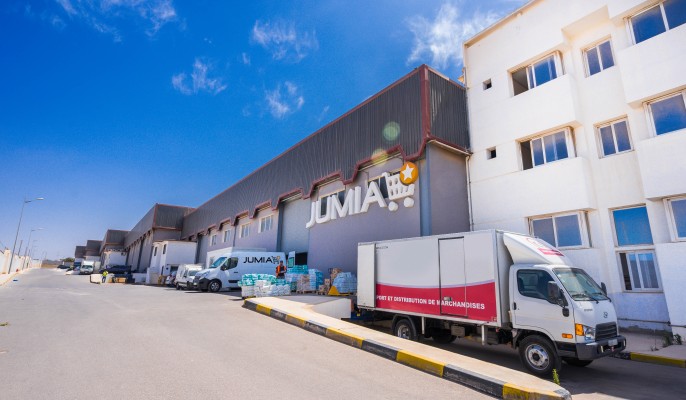Jumia, the pan-African e-commerce company (and sole tech company based on the continent listed on the NYSE), released its first-quarter financial performance today. The company’s results included consistent growth but lapses in some areas compared with Jumia’s previous quarter.
As always, the first page of every Jumia report highlights its year-over-year wins. The first quarter of 2022 was no different.
What did the company highlight in its wins section? Compared to the first quarter of 2021, Jumia recorded double-digit growth in orders, GMV and revenue. Orders grew by 40% year-over-year from 6.6 million to 9.3 million. GMV itself jumped by 27% year-over-year from $198.9 million to $252.7 million. And Jumia’s revenue reached $47.6 million, a 44% rise from Q1 2021’s revenue of $33 million.
According to co-CEOs Jeremy Hodara and Sacha Poignonnec, Jumia saw its highest GMV, order and revenue growth rates of the past nine quarters in Q1 2022. But these numbers fell well below where the e-commerce giant ended 2021, with the last quarter recording GMV sales of $330 million, $62 million in revenue and 11.3 million orders made. However, it’s unfair to compare any quarter with fourth quarters because they are typically hot with e-commerce activities from holiday festivities and Black Friday events every November.
Shares of Jumia are up sharply this morning, rising some 16% in early trading. That’s despite the company’s sequential-quarter decline in growth, as Jumia’s growth in Q1 2022 — in GMV, orders and revenue — comfortably bested what it recorded last year.
Fast-moving consumer goods or FMCG and food deliveries show the fastest growth among its quarterly active customer base of 3.1 million, up 28% year-over-year.
FMCG was Jumia’s second-largest category for items sold during Q1 2022. However, it was the fastest growing category, posting 180% year-over-year expansion. Jumia said this growth was supported by the momentum of “the grocery sub-category which we are currently developing.” According to a few sources that have spoken with TechCrunch recently, the e-commerce company is piloting a q-commerce or quick-commerce offering in Lagos to deliver groceries to people’s homes in an hour or less.
Food delivery grew 86% year-over-year, while phones and electronics grew 19% year-over-year despite “continued global supply chain volatility for these categories.”
Other metrics detail Jumia’s growth acceleration. The total payment value (TPV) of its fintech arm, JumiaPay, grew by 36.7% to $70.7 million in the first quarter, primarily supported by solid growth in GMV. Total transactions on JumiaPay reached 3.2 million in Q1 2022, indicating a 32% year-over-year increase. Most of these transactions were from the food delivery category, with JumiaPay completing 34% of the orders on the platform throughout the quarter.
In April, JumiaPay was granted a Payment Service Solution Provider (“PSSP”) license by Nigeria’s apex bank, the Central Bank of Nigeria, to process payments for third-party businesses. The license offers a long-term and compounding growth avenue for JumiaPay. We should keep an eye on this category in succeeding quarters as the platform’s TPVs might reach nine figures by next year (personal projections here).
The company’s logistics business has faired well too. Last quarter, Q4 2021, the e-commerce platform shipped 3.3 million packages for 996 partners, up from 2.9 million packages for 766 clients the previous quarter. In Q1 2022, the pan-African e-commerce giant reached new highs, shipping over 3.5 million packages for 1,250 clients.
Moving on: Jumia’s losses are not coming down. Last quarter, the company said it planned to spend up to $55 million in sales and advertising in the first half of 2022. So far, it has coughed out $18.8 million this quarter in that category, up 94% year-over-year.
Jumia’s adjusted earnings before interest, taxes, depreciation and amortization (EBITDA) loss was $53 million in Q1 2022, a 70% year-over-year increase. But it’s a sequential-quarter drop from the $70 million recorded in Q4 2021, a figure co-CEO Poignonnec, on a call with TechCrunch, said the company would ensure it doesn’t surpass going forward.
The e-commerce company traded at $5.53 per share before its earnings call, a significant drop from the $25 range it traded in on the bourse this time last year. But its share prices fare better now at $6.87 (at the time of writing) as it has shown steady growth in the vital parts of its business in its earnings report. But mounting losses with profitability far in the future, blended with continued share sell-offs of tech companies from Q4 2021 up until now, has contributed to its depressed valuation compared to historical levels.
From its Q4 2021 financials, Jumia said it finished the year with $512.8 million ($117.1 million of cash and cash equivalents and $395.7 million of term deposits and other financial assets). These figures now stand at $421.2 million, $88.7 million and $332.6 million, respectively, as of March 31, 2022.
[ad_2]
Source

